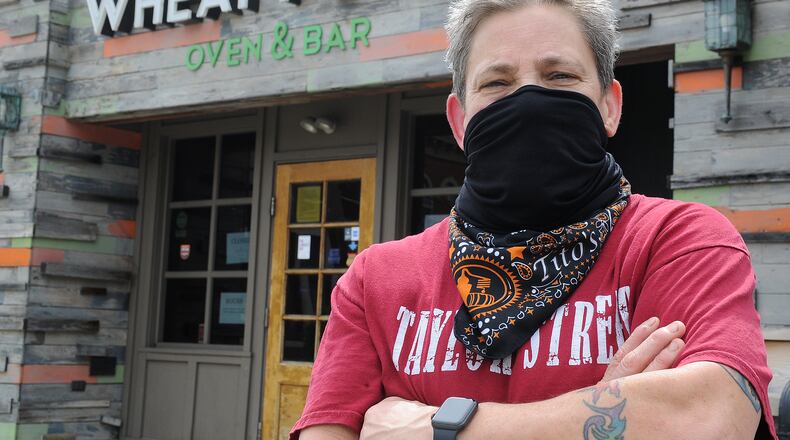“At the Wheat Penny Oven and Bar in Dayton, Ohio, demand for pizza and craft cocktails has never been stronger, but staffing shortages have temporarily forced the restaurant to close on Sundays and Mondays,” read the first paragraph in the story.
The report explored the industry-wide problem restaurants are having with staffing.
“Not everybody wanted to come back,” says co-owner Liz Valenti. “People that had been in this industry for five, 10, 15 years made the decision not to come back to hospitality. They’ve moved on to other areas.”
Across the Miami Valley, countless eateries — including local restaurants and national franchises like McDonald’s — have ‘We’re hiring!” signs posted on their windows and doors. Many restaurants have started incentive programs for existing staff members in particular.
In late April, Lock 27, located in downtown Dayton and Centerville, announced its Pandemic Pay benefit for all its kitchen staff members. Beginning at the time of the announcement and running through Oct. 31, Lock 27 said it will be supplementing its kitchen teams’ regular pay with an additional $4/hour pandemic pay benefit.
“The pandemic has been tough for everyone, but especially hard for the kitchen teams (within) the restaurant industry,” said Steve Barnhart, CEO/Founder of Lock 27 Brewing. “Our goal is to help our hardest hit team members get back on their feet as we come out of these trying times.”
“At Wheat Penny, sales have topped pre-pandemic levels, but they would probably be higher still if Valenti could find enough workers to operate seven days a week,” reported NPR. “Valenti has raised pay for her line cooks from $13 to $15 an hour, and she’s also touting fringe benefits not usually associated with restaurants.”
Average hourly wages across the hospitality industry were 9.6 percent higher in July than they were in 2020, according to NPR. Large companies in the industry like The Cheesecake Factory and Chipotle reported they’ve been able to “staff-up successfully since raising their wages,” though many restaurants that did the same are still struggling.
The article cites multiple factors for the staffing challenges. Among those include uncertainties surrounding the surge of new coronavirus cases linked to the Delta variant, employees hesitant to want to come back with the potential of facing “hostile customers who don’t want to wear a mask,” and concern about some would-be employees waiting for more of the population to get vaccinated before applying or returning.
“At Valenti’s restaurant in Ohio, servers have voluntarily started wearing masks again, just 10 days after shedding the face coverings,” NPR reported. “The restaurant is not asking customers to mask up yet, but that could change.”
“Governor [Mike] DeWine has made it clear he is not going to make a mandate again,” Valenti says. “So, I think it’s going to be on the shoulders of independent businesses to make that hard call. And it’s unfortunate that it’s going to be a young person at a host stand that is going to possibly have to ask someone to put a mask back on. That’s a really unfortunate situation.”
About the Author

